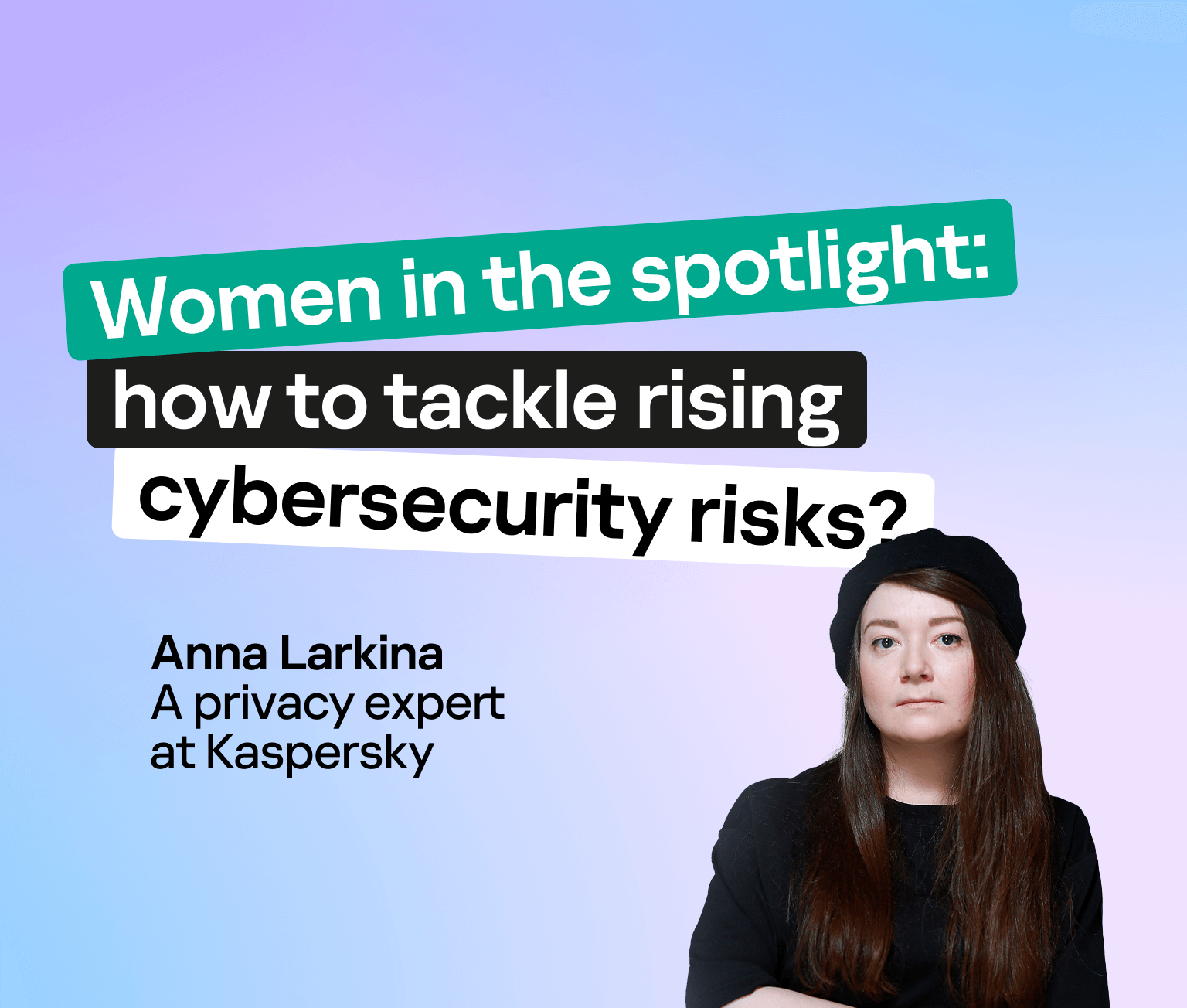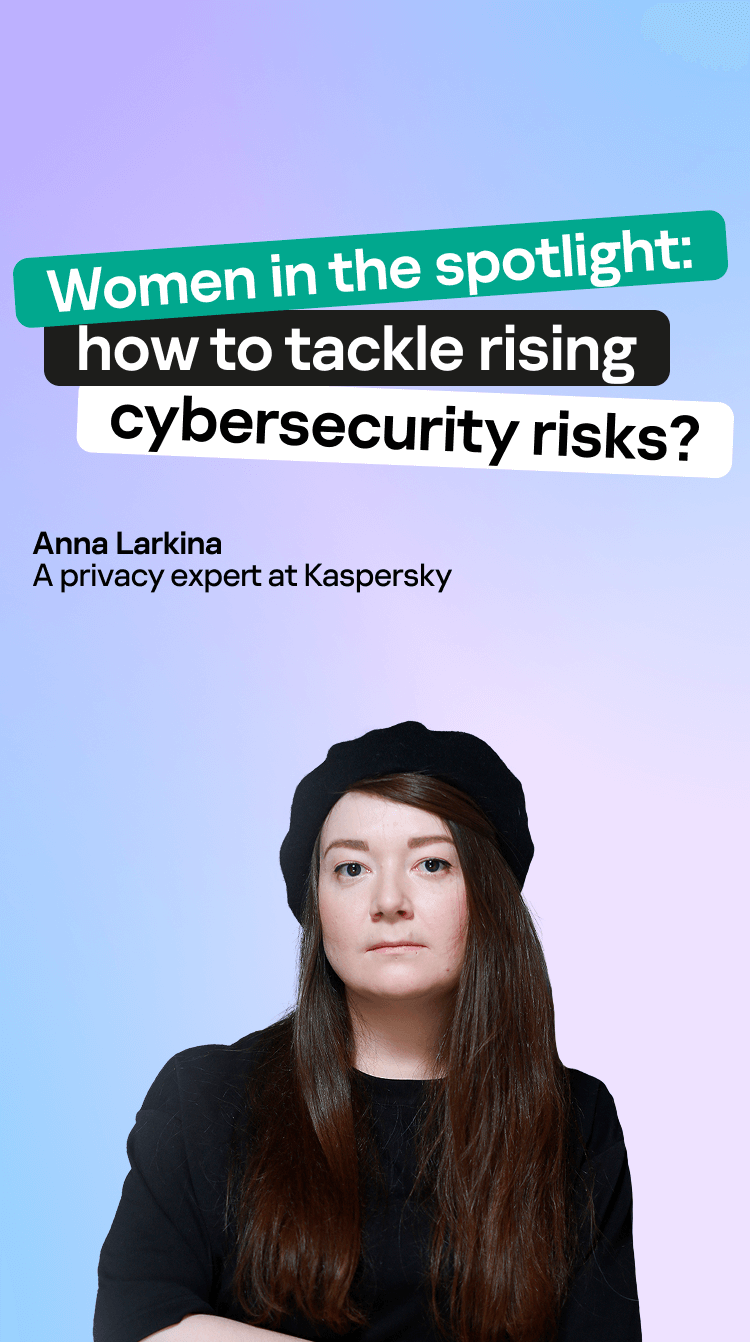


It is still quite common for women to be the sole female member of staff – or at least in the minority compared to men. As a result, they often receive more attention as they are seen as the «exception.» This phenomenon is a basic human reaction – when something deviates from our usual expectations, we are naturally drawn to it.
If a woman has achieved success and prominence in the IT industry, holding a high position within her company and leading a team, it significantly amplifies the spotlight on her. This because only a small percentage of women in the tech industry (10.9 percent) reach higher levels of achievement.
Numerous women encounter online harassment solely due to their active online engagement within their professional sphere. A survey reveals more than a half of young women has encountered online abuse. The harassment escalates even further for women with a prominent online or media presence.
It’s not just about the numbers; it’s about the type of mistreatment women face online. It often includes sexist, racist, and violent behavior. So, it’s important to understand these risks and take action – to protect yourself and support other women in combating this problem.

It’s crucial to emphasize that online abuse is never acceptable and even illegal in some countries
Online abuse refers to actions that are threatening, intimidating, harassing, or humiliating towards a person. Women who are in the public eye due to their work are particularly vulnerable to being singled out.
The consequences of online abuse can be severe. It takes a toll on women’s well-being, mental health, confidence, relationships, and overall sense of safety. As a result, some women may withdraw from public discussions or start censoring themselves to protect their privacy and safety.
 The mistreatment online can take many forms:
The mistreatment online can take many forms:
- Doxing is the action of finding or publishing personally identifiable information about someone on the internet without their permission, especially in a way that reveals their name, address and other information that can be and often is used for tech-enabled abuse. And this is true for women from various career industries. For instance, Aryee Davis, a Liberian journalist, faced a crushing backlash after she reported that a powerful lawmaker had lied about his university degree. Doxing attacks against Davis and threats against her family became so intense that she pulled her children out of school for several weeks for their safety.
- Impersonation accounts pose significant risks for women working in IT, particularly in the context of online spaces. Impersonation involves creating fake accounts or profiles that falsely represent someone else. Impersonation can harm a woman’s professional reputation by spreading false information or engaging in inappropriate behavior under her name. This can have serious consequences for her career and professional relationships. According to UN research, more than 67% of women reported impersonation of their accounts.
- Deepfakes involve the use of artificial intelligence to create realistic fake videos or images, often manipulating someone’s likeness convincingly. Deepfakes can manipulate visuals to falsely depict women engaging in inappropriate or unprofessional behavior. Such content can damage the personal and professional reputation of women working in IT, harming their credibility and career prospects. A study on the state of deepfakes found that 96% of this type of online videos were of intimate or sexual nature. Some research has documented gender patterns in this phenomenon, showing that it disproportionately affects women compared to men, making it another form of gender-based violence.
- Defamatory comments, intended to harm someone’s reputation, can have detrimental effects on both personal and professional aspects of a female’s live. Negative and false statements about her competence, work ethic, or character can spread rapidly, potentially impacting her career advancement and opportunities. If defamatory comments are circulated within the workplace, it can create a hostile and uncomfortable work environment for women in IT. This can lead to increased stress, diminished job satisfaction, and negatively affect overall well-being.
The main problem is that anyone who might reveal woman’s sensitive personal information or make a malicious attack against her could become an abuser. We tend to imagine them as skilled hackers, but in reality, they can be everyday individuals of any gender, including those we are familiar with.
The question arises — what is the purpose of this behavior and why do abusers do it? There are several reasons, including personal animosity towards someone, such as being rejected romantically or being jealous of someone’s success. They aim to personally benefit, humiliate, punish, or intimidate their victims through their actions.
If a woman works in an IT environment, it can be assumed that the potential attacker is similarly well-versed in the tech sphere and can use advanced tools in their attack. Therefore, it is crucial to take extra precautions to ensure protection.
 How to protect yourself?
How to protect yourself?
- The more a person publishes information about themselves in social media, being a more popular and significant figure, the greater the risk that they will become a victim. Therefore, it is necessary to think before posting something on the social media networks if it is sensitive information and ensure it really is something you want to share.
- Make your profile more private – this will immediately limit the number of people who may try to use your personal information for malicious purposes. For instance, select various categories of people you would like your posts to be seen, such as “close friends” and “everyone”. Also, consider how many of your followers you do not know in person – you still need to be cautious even if your account is private.
- Do not share your geolocation or limit it as much as possible. This will limit the risk of accidentally revealing your home address, and protect you from the threat of being stalked. If you are afraid that someone may use spyware on your device, use TinyCheck tool to reveal it.

Don’t be afraid to be bright and shine in your IT career. If you encounter this problem, do not be afraid to talk about it, at least inform HR if the situation unfolds within the company. Don’t be afraid to speak up if you see unacceptable behavior. Follow these tips and continue to achieve brilliant success – and no one will be a threat to you.
Remember, it's important to protect your personal data like your money in the bank.
- Use strong passwords and different credentials for different accounts
- Secure your email
- Use 2FA authentication on all services
- If you are not using your own device, sign-out of apps that use your personal accounts
- Use Do Not Track tools
- Always use a password manager
- Secure all of your devices with passwords
And, of course, protect your well-being:
- Keep in mind your strengths. Don’t allow others’ opinions to shape your self-worth. Take a moment to reflect on your positive qualities and attributes.
- Take a moment to pause and reflect. Dealing with online abuse can be intense. Allow yourself the necessary space and time so that you respond rather than react.
- Recognize your emotions. It’s okay to feel upset. However, avoid exhausting your emotional resilience by constantly defending yourself against every undeserved attack. Assess whether it’s worthwhile to invest your time and energy in such situations.
- Be with people who support you. You don’t have to deal with this alone. Talk to family, friends, and others who can help. Think about getting help from counseling or support services if you need it. And don’t forget to take care of yourself. You can do this by enjoying free time, exercising, eating well, getting enough sleep, practicing meditation, and trying relaxation methods.
- Be a role model. Find purpose in knowing that your actions contribute to making the online world better for other women, shining in their IT career. Support your fellow women when they face online abuse by speaking up about your experience.